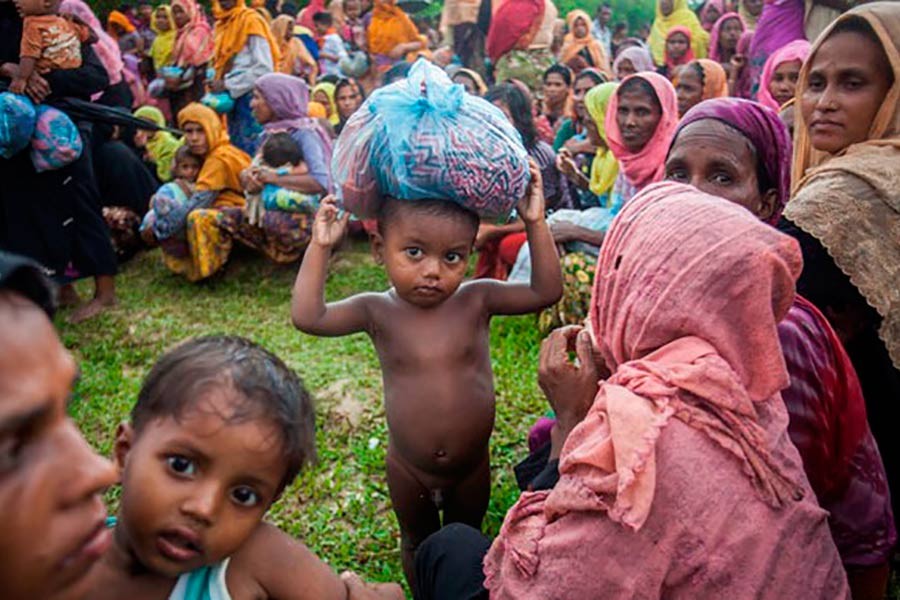Humanitarian agencies operating in Cox’s Bazar urgently need US$77 million to assist people who have fled violence in Rakhine, Myanmar as Rohingya refugees in the district tripled in the last two weeks.
Since August 25, an estimated 290,000 people are believed to have crossed the border from Myanmar to Bangladesh, tripling the Rohingya population in Cox’s Bazar in two weeks, said the UN office in Dhaka, reports UNB on Saturday.
The rapid movement of people across the border has put massive strain on the existing camps and settlements and those supporting the new arrivals.
New settlements have been built and are expanding fast, though people have little access to basic services.
The Response Plan, developed as a result of the influx people to Cox’s Bazar, outlines the life-saving support UN agencies and international NGOs are aiming to provide 300,000 people until the end of 2017.
Efforts by Bangladesh government to meet the needs of those who have crossed to Cox’s Bazar are already being supported by humanitarian agencies that are providing shelter, healthcare, water and sanitation, food, nutrition, and education assistance, as well as support to ensure the safety and dignity of the new arrivals.
The $77 million requested by the new Plan will allow agencies to scale up their response to meet the rapidly growing needs of the new arrivals.
The UN Resident Coordinator in Bangladesh, Robert Watkins, said, “With the movement of people showing no signs of stopping, it is vital that agencies working in Cox’s Bazar have the resources they need to provide emergency assistance to incredibly vulnerable people who have been forced to flee their homes and have arrived in Bangladesh with nothing.”
“Before this latest crisis agencies were already working on the ground, but the influx has overwhelmed the services that were in place. To support the new arrivals there is now an urgent need for 60,000 new shelters, as well as food, clean water and health services, including specialist mental health services and support for survivors of sexual violence.”
To support the implementation of the Response Plan, the UN Central Emergency Response Fund (CERF) has allocated US$ 7 million.
This will allow agencies to provide lifesaving assistance to an estimated
75,000 people in the three new spontaneous settlements where new arrivals have limited or no access to humanitarian assistance, and the most vulnerable new arrivals who have settled in the two formal registered camps.


